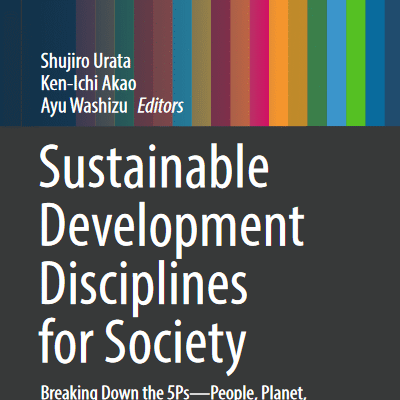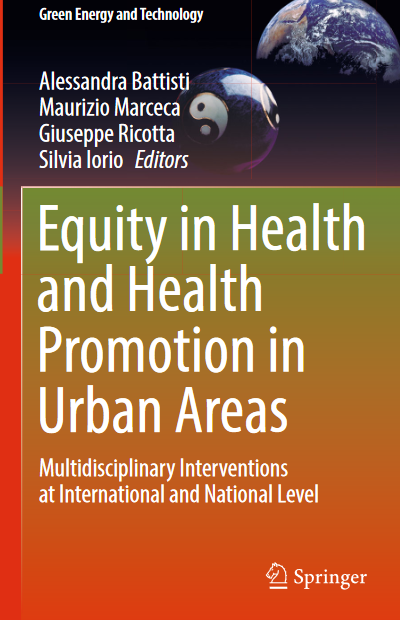

خرید و دانلود نسخه کامل کتاب Equity in Health and Health Promotion in Urban Areas Multidisciplinary Interventions at International and National Level – Original PDF
64,500 تومان قیمت اصلی 64,500 تومان بود.37,500 تومانقیمت فعلی 37,500 تومان است.
تعداد فروش: 58
Author:
Alessandra Battisti · Maurizio Marceca · Giuseppe Ricotta · Silvia Iorio
4 A. Battisti of our metropolises, where about 18% of all housing units, numbering about 125 million, are made up of non-permanent structures and more than 30% of temporary dwellings will be in areas subject to noteworthy phenomena of environmental risks [2]. In Europe and in the OECD countries, the same process of human concentration in large urban agglomerations shows models of densely populated cities, with high rates of air pollution and land consumption, with an increasing number of social groups that are subject to socio-economic marginality and consequent housing and health problems [3]. From the beginning, the concept of public health is deeply connected to the social development of mankind within the housing environment, focusing on housing as a problem of primary urgency [4]. In literature, a healthy habitat is tightly connected to the importance of the physical and social environment as a determining factor for health and social equity [5, 6], and is currently character- ized by the COVID-19 pandemic and the POST-COVID transition. Consequently, we are witnessing the exacerbation of all those phenomena of social inequality that have clearly highlighted the structural lack of public spaces and services in the most disadvantaged areas of cities [7]. Due to the fact that this problem affects a quarter of the world’s population, it is clear that it is no longer elusive and that it requires a coordinated and multidisciplinary response. This response must contribute to the improvement of the living conditions of the beneficiary populations not only to ensure the satisfaction of the primary needs for development, but also to make communities less vulnerable to the climate-environmental emergency. In addition, these actions should move in the direction outlined by the major international institutions, which through the Sustainable Development Goals of the UN 2030 Agenda provides for the integration of three dimensions of sustainable development—environmental, social and economic [8]—as a prerequisite for eradicating poverty in all its forms and for ensuring health for all and guaranteeing sustainable cities. Moreover, this approach should be in line with those SDGs among the 17 objectives set out in the Agenda [9] that focus more on these problems, such as the third on the need to ensure health and well-being for all, which focuses on different areas of intervention, including specifically: fighting against epidemics of viral diseases in the world; countering communicable diseases as well as chronic diseases; and, promoting well-being and mental health. Over time, the spread of improved global hygiene had been making significant improvements, especially in the most disadvantaged parts of the world. More generally, attention to environmental factors was the necessary prerequisite for these advances, especially in the reduction of communicable diseases, a process that came partially to a halt during the recent pandemic. Furthermore, by focusing on solving the problems mentioned above, we find the sixth goal concerning the avail- ability of water, with the aim of making water accessible and safe for the population and for ecosystems as a guarantee of survival and good human and natural health. The thirteenth goal promotes actions to combat climate change, and the fifteenth is aimed at protecting and restoring a sustainable use of the terrestrial ecosystem and the eleventh focused on cities with the aim of making them inclusive, safe, resilient and sustainable. In this perspective, cooperation, solidarity and sustainability are Urban Regeneration … 5 the three dimensions of a synergistic approach to the sustainable development of marginalized communities in Europe and the rest of the world [10]. 2 Public Health: From the Ethical Value to Social Determinants Already in 2010, Michael Marmot together with the UCL Institute of Health Equity research group—in the post-2010 Strategic review of health inequalities in England report entitled “Fair Society, Healthy Lives”, also known as the Marmot review—had highlighted how social determinants, (i.e. the conditions in which people are born, grow up, work, live and age and their access to power, money and resources), are the main factors that determine unfair, avoidable and remediable health inequali- ties among different social groups. The specific social determinants produced and continue to be produce these inequalities include: poverty and deprivation; mobility imposed on precarious low-wage workers; lack of social protection; overcrowded housing; poor protection at work and low standards of health at work; inequality of legal status or residence; stigmatization; inequality of access to acceptable infor- mation on public health; inequality of access to economic care, prevention and vaccination [11]. The report certainly marked a new way of thinking about health, and specifically urban health. No longer can it be considered as a collateral issue to social housing policies, shifting the focus beyond actions strictly focused on social welfare, making the issue of public health one of the cornerstones of practices that concern local devel- opment, urban regeneration, housing policies, security policies, education, services and employment opportunities [12]. The same concept had already been highlighted by Didier Fassin in Critique de la santé publique, when he wrote how public health was characterized by a conviction, necessarily shared among those who claim it, in a common value: health as a public good or asset. This definition—which in the writing of the French anthropologist— should allow us to understand, among the values that a society possesses, how health is the most important among all values. Moreover, in principle, this value is systemat- ically in favor of the collective interest towards a healthy city, or an abstract universe in which the common principle of public health would be realized as a question of ethics and values that must be defended by other values, in particular by economic aspects or values [13]



نقد و بررسیها
هنوز بررسیای ثبت نشده است.